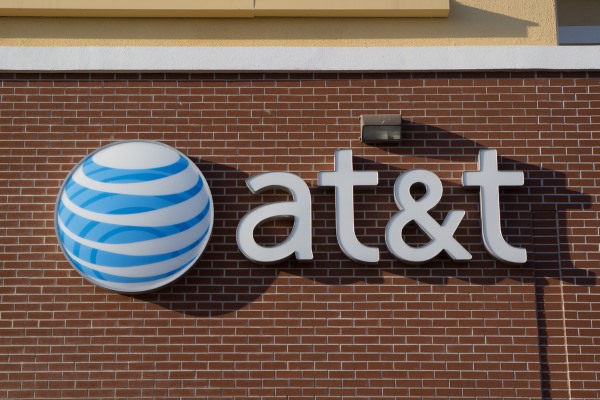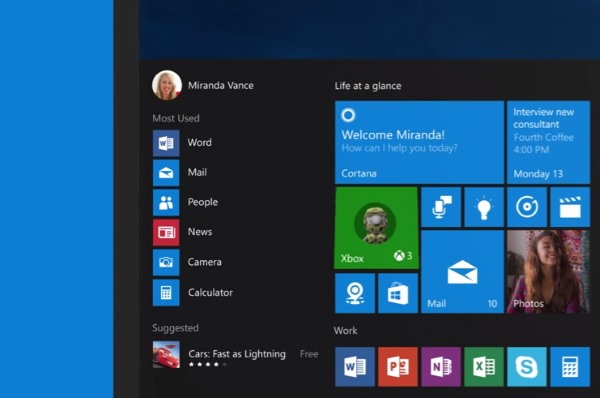
Now Google must censor search results about Right to Be Forgotten removals
The Right to Be Forgotten has proved somewhat controversial. While some see the requirement for Google to remove search results that link to pages that contain information about people that is "inadequate, irrelevant or no longer relevant" as a win for privacy, other see it as a form of censorship.
To fight back, there have been a number of sites that have started to list the stories Google is forced to stop linking to. In the latest twist, Google has now been ordered to remove links to contemporary news reports about the stories that were previously removed from search results. All clear? Thought not...

New Snowden documents show AT&T helped the NSA spy on internet traffic
The NSA has been helped by AT&T for decades in spying on huge quantities of internet traffic new-disclosed documents reveal. The astonishing relationship between the National Security Agency and the telecoms company goes far beyond any sort of arrangement or co-operation that came from other firms.
Evidence published by the New York Times shows that the NSA had arrangements in place with AT&T and Verizon, but the partnership with AT&T proved particularly lucrative. The communications giant added surveillance equipment to at least 17 of its web centers and was used as a testing ground for new spying technologies and techniques. All this is revealed in a new batch of documents provided by Edward Snowden.

Firefox stealthily loads webpages when you hover over links -- here's how to stop it
Pre-fetching or caching of web pages is a technique used by many web browsers to improve perceived performance -- it's nothing new. But Firefox takes a slightly sinister and stealthy approach. Simply hover your mouse over a link and the browser fires off requests to the associated website in the background.
While this sounds potentially helpful, it is also something of a privacy and security concern -- not to mention a waste of bandwidth. You might hover over a link simply to check out the destination in the status bar; if there is a link to a malicious or unsavory website, you probably don’t want these stealthy connections being made in the background. If you're worried about your security or privacy, or just want to be back in control of your web connection, there are steps you can take.

Windows 10 could disable pirated games and unauthorized hardware
Cries of "FUD!" ring out whenever potential issues and concerns with Windows 10 are pointed out, but there's no denying that the launch of this version of Windows has been more blighted than any other. The latest controversy finds Microsoft updating its EULA so that it is able to block pirated games and unauthorized peripherals.
While on one hand this seems entirely reasonable -- few people would argue too strongly that they should be permitted to play pirated games -- on the other it is confusing and worrisome. It is yet another example of Microsoft causing trouble for itself by failing to properly communicate with its customers, being insufficiently transparent and clear in meaning. Just what is an 'unauthorized peripheral'?

Cyber-flashing is apparently now a thing -- Here's how to avoid receiving dick pics from strangers
There’s a new type of mobile phone crime happening in London, according to the BBC, and it’s been dubbed "cyber-flashing". This, in a nutshell, is when the victim -- a woman in the first reported case of its kind -- receives pictures of a stranger’s genitals on their phone.
The offending photos are received via Apple’s Airdrop feature, and so it only affects iPhone owners.

Windows 10 phones home to Microsoft even if you change privacy settings
Many people regret upgrading to Windows 10, and many are put off from making the move to the latest version of Microsoft's operating system, because of concerns about privacy. The answer to privacy worries about Windows 10 features such as Cortana has been 'just don't use them', but it seems that this might not be enough.
Research carried out by Ars Technica shows that even with features disabled and privacy settings activated, Windows 10 continues to send information back to Microsoft. The data is sent by a series of tools including OneDrive, Cortana, and Bing -- even when a local account is used.

Users are unhappy that Windows 10 automatically sends emails about child account activity
Windows 10, just like its predecessor Windows 8.1, allows for the creation of child accounts that can have limitations imposed upon them. It's a feature that many parents take advantage of, but as more and more people start to upgrade to Windows 10, increasing numbers are complaining about the way in which Microsoft monitors account activity and sends out regular emails about that activity.
The account activity email is optional in Windows 10 -- just as it was in Windows 8.1 -- but it is switched on by default. While many parents like the idea of being able to place restrictions and limitation on a child's Windows account, the "creepy" email that many are seeing for the first time is viewed as a step too far.

Facebook's privacy settings allow for harvesting data through mobile numbers
If you've added your mobile number to your Facebook account, you might want to reconsider in light of a new security exploit. A software engineer was able to access user data just by entering their mobile number. Profile pictures, names and locations were all accessible even for users who had not made their number public.
There is potential for such harvested data to be misused by malicious parties, as it provides an easy way to link a mobile number to an individual. Reza Moaiandin was able to use a special tool to quickly generate tens of thousands of numbers which, when passed through a Facebook API, fed back the associated user profiles.

Stay in control of your privacy in Windows 10
Over the past week and a half many thousands of people worldwide will have taken the plunge into Windows 10. But, as we've previously pointed out the free upgrade comes at a price in terms of privacy.
So what can you do to enjoy the advantages of Windows 10 without giving away too much of your information? Here are some tips to help you protect your details.

Microsoft: Windows 10 collects users' private information, but not for ads
It’s been a week since Windows 10 was released, and the biggest issue about Microsoft’s latest OS seems to be in the nature and the amount of private data it collects.
We recently wrote about Cortana, the digital assistant, and how much it collects, and now Microsoft has updated its terms of service agreement to better clarify what it collects and how it uses such data.

Do you regret upgrading to Windows 10?
Windows 10 is now with us, and, whether you've made the move from Windows 7 or Windows 8.1, there is a lot to love, but also a lot to hate. With this latest release, there is also one very big difference from previous versions of Windows: it is free of charge.
This is not only likely to encourage more people into making the move to Windows 10, but it also opens up a possibility that many people would simply not have considered before. If you decide that you don’t like Windows 10 (the OS is not without its fair share of problems, after all), you can downgrade to your previous version without ending up out of pocket. The question is, how many people will go -- or have gone -- down this route?

You don't need to use a Microsoft Account to download apps from Window 10's Store
With Windows 10, Microsoft is particularly keen for you to use a Microsoft Account. It's something that was present in Windows 8, and it is still billed as a way to sync settings and apps between computers. While you may be encouraged to use a Microsoft Account, it is not necessary -- you can use a local account, but if you decide to download apps from the Store, you'll be prompted to switch this to a Microsoft Account.
If you're concerned about the privacy implications of using a Microsoft Account, you may want to avoid using it whenever possible. Sign into the Store with a Microsoft ID, however, and you'll find that your local account is converted into a Microsoft account. Here's how to download apps without having to switch.

Privacy alert: your laptop or phone battery could track you online
Is the battery in your smartphone being used to track your online activities? It might seem unlikely, but it's not quite as farfetched as you might first think. This is not a case of malware or hacking, but a built-in component of the HTML5 specification.
Originally designed to help reduce power consumption, the Battery Status API makes it possible for websites and apps to monitor the battery level of laptops, tablets, and phones. A paper published by a team of security researchers suggests that this represents a huge privacy risk. Using little more than the amount of power remaining in your battery, it is possible for people to be identified and tracked online.

ISPs in India told to block access to 857 porn sites
Porn is big business online, but it's also at the center of many a debate surrounding decency, child protection, and censorship. The Indian government has ordered that ISPs in the country block access to more than 800 porn sites in a bid to stop children viewing unsuitable material.
Interestingly, while access to porn is being restricted, it is not being blocked outright. The aim is not to stop adults from viewing pornography but to "protect India's cultural fabric" in addition to protecting children.

The insane popularity of proxy site Unblocked shows the futility of web restrictions
Few people like to be told what to do, and this is certainly the case online. If you're told that you're not allowed to visit a certain website, it is only human that you question why -- it may well increase your desire to visit said site. Around the world, governments have taken it upon themselves to try to police the internet. It's something many would describe as an exercise in futility, and it seems they are correct.
The implementation of restrictions on access to certain websites can be seen in many countries, but it is something that the UK government has shown itself to be particularly keen on. So how successful have initiatives to block access to the likes of the Pirate Bay, KickAssTorrents et al actually been? Not very. One site that helps users to get around web restrictions is proving more popular than both Skype and Spotify.
